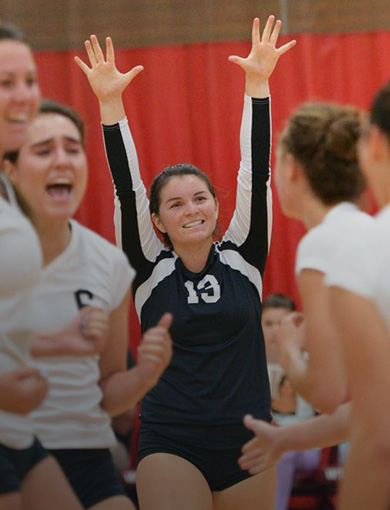ACL Reconstruction
If you follow or play football, basketball or soccer, you’re bound to hear about someone who’s had an ACL injury, a sprain or tear of one of the primary ligaments of the knee joint. In fact, injuries of the ACL – or anterior cruciate ligament – are among the most common types of knee injuries, especially among athletes in sports that place a lot of demand on the knee joint. The ACL and the PCL (posterior cruciate ligament) are located inside the knee joint behind the kneecap. These ligaments join the upper bone of the knee joint (the femur or thigh bone) with the lower bone (the tibia or shin bone) and help keep the knee stable. The two ligaments cross each other (cruciate means “cross-shaped”).
Injuries to the ACL cause pain and instability in the joint, and while most sprains and relatively minor ACL injuries may heal with conservative options like physical therapy and activity modification, more serious injuries like ligament tears might require surgery to repair. ACL injuries also often occur in combination with other types of knee problems, including damage to the cartilage or meniscus that cushions the joint and promotes pain-free movement.
How is the ACL injured?
ACL injuries often are caused by movements like pivoting or changing direction rapidly, both of which can result in twisting, stretching and tearing of the ligament. Landing poorly after a jump or slowing down quickly when running can also cause ACL injuries, and some can be caused by direct impact injuries.
ACL injuries are graded according to their severity
- Grade 1 includes the mildest injuries, where the ligament is stretched, but not enough to cause significant instability.
- Grade 2 injuries include partial tears and more substantial stretching that causes instability in the joint.
- Grade 3 injuries cause the ligament to become completely torn, resulting in significant instability in the joint. Many ACL injuries fall into this category.
Very mild ACL injuries may be treated with a knee brace and crutches along with physical therapy to restore strength in the joint and the muscles that support it, but most ACL injuries require surgery to prevent instability and future injury.
What happens during ACL reconstruction?
Sometimes, torn tissues can be sutured back together, but that’s not the case with ACL tears. The ligaments in the knee are subjected to considerable stresses, and a sutured repair doesn’t allow the ligament to heal properly, which means instability will persist. Instead, a torn ligament must be reconstructed with a graft. Over time, new ligament tissue will grow along the graft to restore stability and function in the joint. The graft may be taken from tendons in your shin or your thigh, or in some cases, they may come from an outside donor.
ACL reconstruction typically is performed using an arthroscope, a special surgical instrument that features a tiny camera to enable the joint to be viewed without a large incision. Additional small incisions are used to insert the instruments used to perform the surgery. Knee arthroscopy is associated with less tissue damage and a faster recovery compared to surgeries that use large incisions. During the surgery, the damaged ligament is removed, and the tendon graft is put in place and secured with special screws or other devices, then the incision is closed. Following surgery, you’ll need to have physical therapy for several months to restore function in your knee.
Surgery for an ACL tear typically is delayed until after injury-related inflammation subsides to reduce the risks of scar formation in the joint.
Learn more about ACL reconstruction.
As the leading orthopedic clinic in Chico and Paradise, Orthopedic Associates of Northern California has significant experience in ACL reconstruction using state-of-the-art approaches to help our patients get back to their active lives. To learn more about ACL reconstruction or to find out what’s causing your knee symptoms, call OANC at 530-897-4500 and schedule a consultation with one of our orthopedic surgeons.





